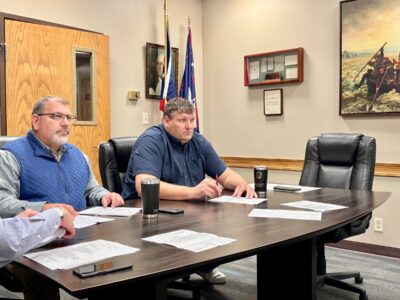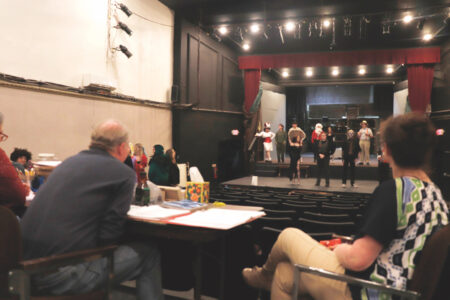Housing issues discussed at forum
The world of fair housing is far more complex than its name would suggest.
The City of Marietta has a Fair Housing Board, and a significant part of the city’s community development director’s time is taken up with fair housing issues.
A summit on fair housing held at Washington State Community College took the entire day Friday, covering issues that included discrimination in housing, knowledge of the rules that apply to fair housing and the function of the Department of Housing and Urban Development in supporting communities in their fair housing efforts and overseeing the way funding is spent.
Kevin Kravitz, an equal opportunity specialist for the HUD office in Cleveland, started the session with a keynote address emphasizing that fair housing goes well beyond simply providing shelter.
“In my job, I get to look at the intersection of housing and civil rights,” he said. “When people think about civil rights, they tend to think about the Jim Crow laws in the South, about segregation in businesses and schools.”
Kravitz took the audience – about 25 people, mostly professionals involved in housing and advocacy work for the underprivileged – through a quick history of civil rights, starting with the 13th, 14th and 15th amendments and winding up with the Civil Rights Act of 1968, which included the fair housing rules for seven protected groups. The rules prohibit discrimination in housing based on race, color, national origin, sex, disability, religion and familial status (pregnant women and families with children). Ohio, he said, has additional protections against discrimination based on ancestry and military status.
More than half the cases that come to his attention for action, he said, involve disability issues such as access and accommodation.
Although housing is important, he said, the full meaning of fair housing includes a broader effort toward improving quality of life.
“Protecting against discrimination means little if it isn’t followed by opportunity – access to good education, jobs with a living wage, transportation, facilities and services,” he said. “That is the other component. Communities have an obligation to affirmatively further fair housing.”
In 1968, President Lyndon Johnson said fair housing is part of the American way of life, Kravitz said.
“That was an aspirational statement, but it’s still not quite true. We’ve done a good job of limiting discrimination against protected classes but we still have a long way to go to reach the opportunity goals.”
Guidance for HUD, he said, includes direction that “recipients to the greatest extent possible be provided with training and economic opportunities,” he said.
Marietta Community Development director Andy Coleman told the group that the city receives about $400,000 annually in Community Block Development Grants from HUD. “It’s one of the larger grants we receive, and fair housing is an important part of that,” he said.
Projects range from repairing sidewalks to fixing houses, he said. A grant issued by the city to Washington-Morgan Community Action, for example, helped expand one of the city bus routes to help a neighborhood access employment and training better, he said.
Assistance with housing repairs for people who can’t afford to do it on their own is important, he said, because it helps prevent blighted housing, which can become a burden on the city.
“We’re affirmatively furthering these goals every year, looking at what steps we can take to overcome impediments,” Coleman said.
Felix Burrows Jr. leads the city’s fair housing board. He said the board’s aspiration is to become a clearing house for housing problems, referring people to whatever agency or service they need for solutions. The board is also developing a guide that will include the history of fair housing, information people frequent ask for, and a guide to useful resources.
“We try to further fair housing affirmatively,” he said. “To allow people to live where they want to live and how they want to live.”
Kravitz said his agency has adopted a particular emphasis on the economic opportunity aspect of fair housing.
“In addition to housing, there are mobility opportunities, in which the people can gain access to opportunities either through transportation to them or by moving closer to them, and placed-based opportunities, in which the opportunity is brought to the area where people need it,” he said.
Fair Housing in Marietta
¯Marietta Fair Housing Board: 740-373-9354 / fairhousing@mariettaoh.net
¯Southeastern Ohio Legal Services: Kirsten F. Lewis, attorney (New Philadelphia), 330-339-3998; Robin A. Bozian, attorney (Athens), 740-594-3558





